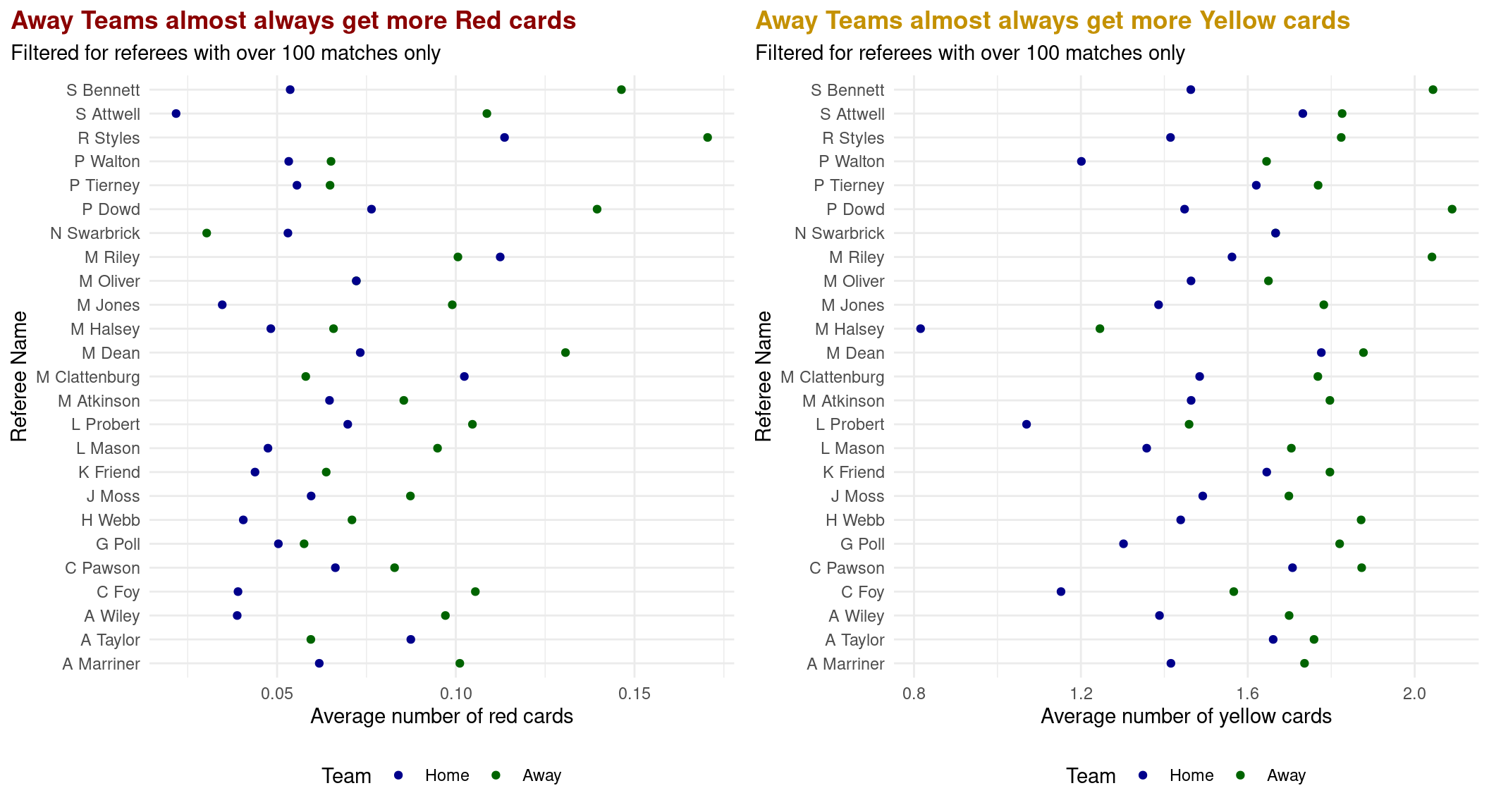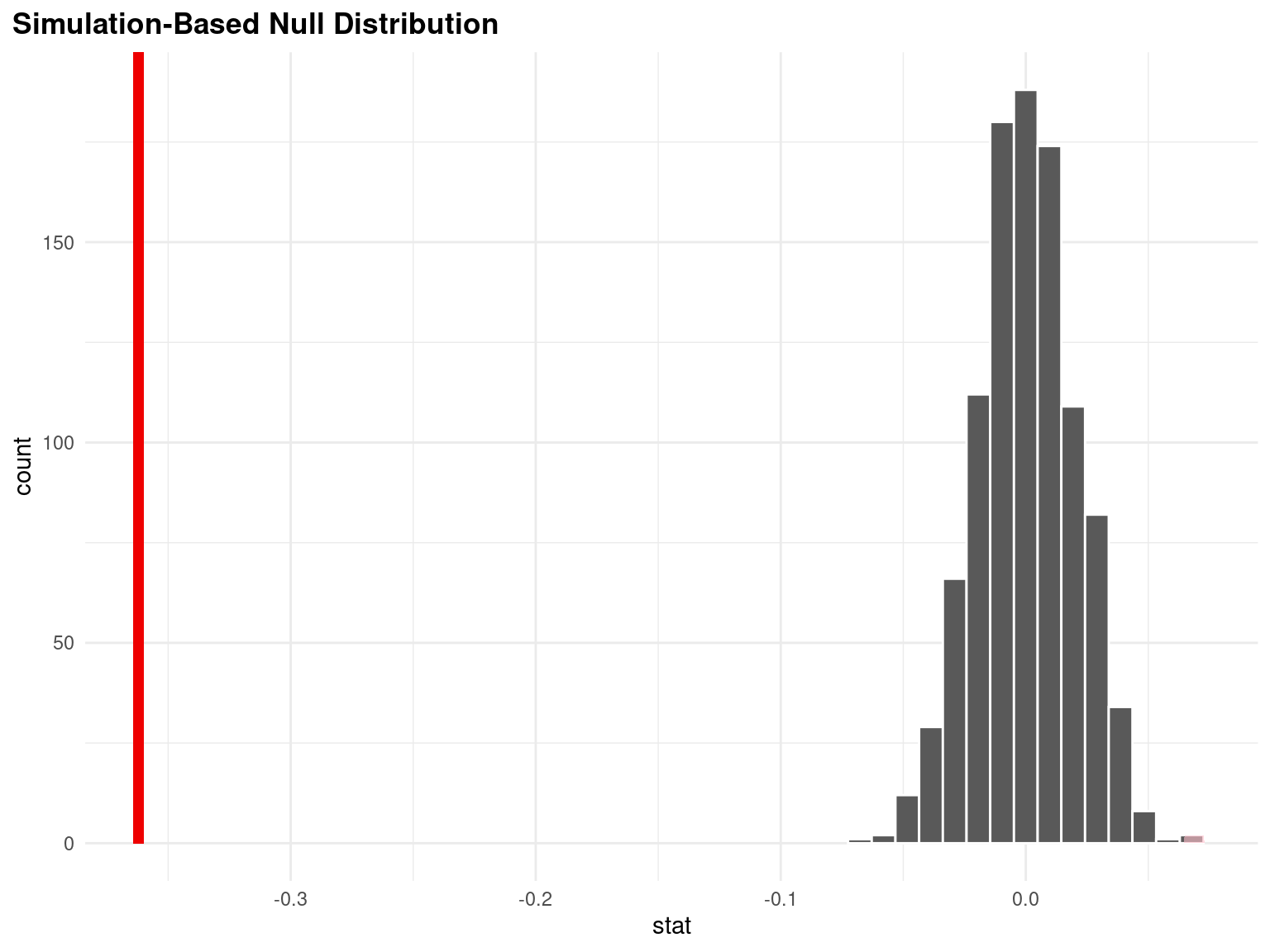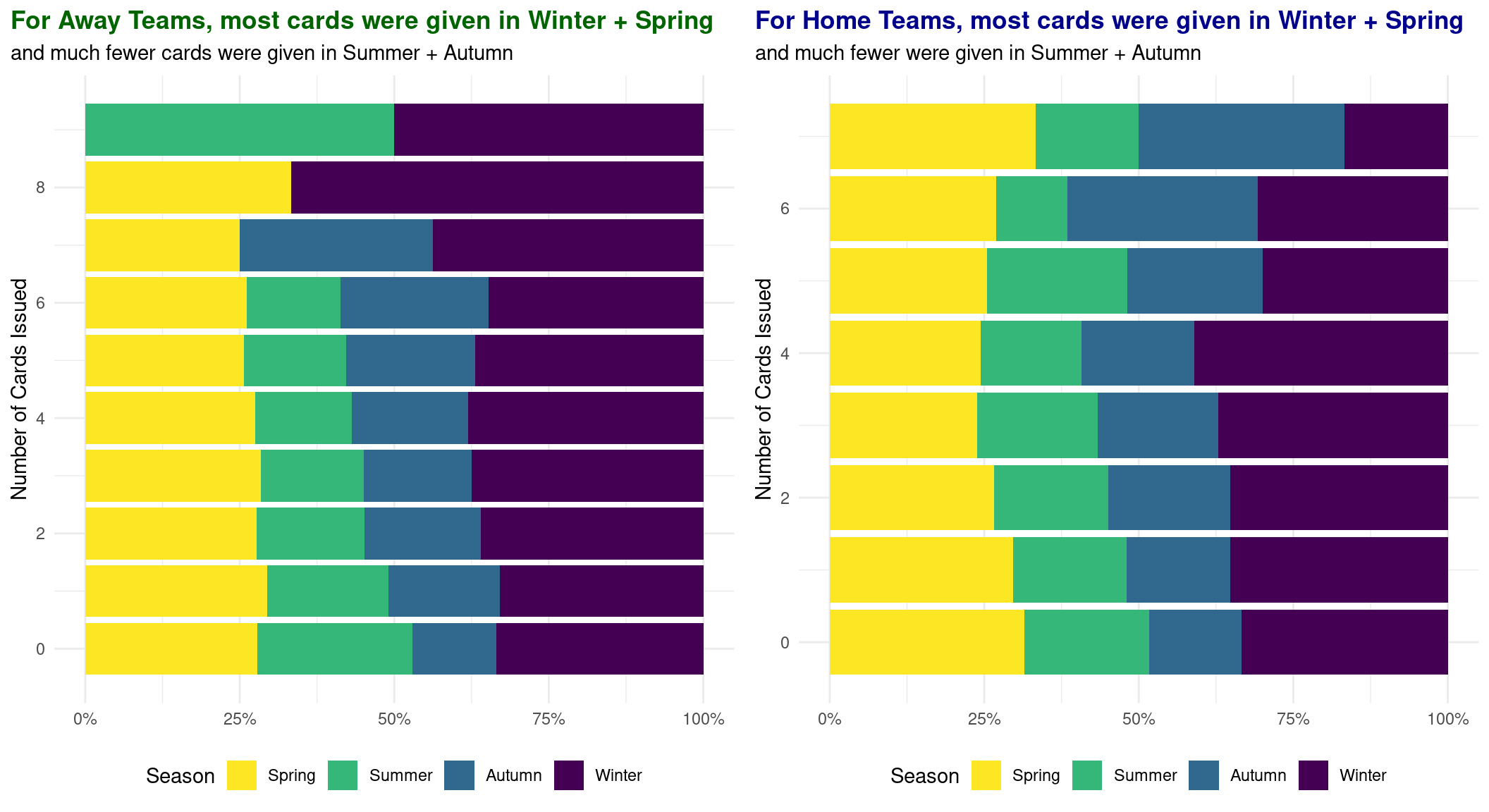Factors that appear to influence card issuance in EPL matches
Covering two factors, namely home advantage and seasonal period, among others
Introduce the topic and motivation
Analyzing data from English Premier League soccer matches:
- Identify if there is a difference between the average number of cards given to the Home Team and to the Away Team
- Red cards vs. Yellow cards
- Explore how the number of cards given differ among seasonal periods
- Spring - Summer - Autumn - Winter
Introduce the data
The data sets were collected from English Premier League (EPL) soccer matches, compiled by Saif Uddin, then cleaned and combined into one data set by us.
Because of the scope and mismatch of variables in the original data sets, we had to limit the number of variables in our cleaned dataset. Key variables for our following two analyses:
Referee- The referee for the matchHY- Home Team yellow cards;AY- Away Team yellow cardsHR- Home Team red cards;AR- Away Team red cards
Highlights from EDA

Analysis #1: Home advantage
Does home advantage appears to exist in EPL matches’ card issuance?.\[ H_0: \mu(cards given)_{home~team} - \mu(cards given)_{away~team} = 0 \]
\[ H_A: \mu(cards given)_{home~team} - \mu(cards given)_{away~team} < 0 \]
- Since p value of 0 < 0.05, we reject the null hypothesis in favor of the alternative hypothesis. We found convincing evidence that
the true mean number of cards (red and yellow) given to the home team is lower than that of the away team.

Analysis #2: Seasonal period

Conclusions + future work
Home advantage: True mean number of cards given to the Home Team is lower than that of the Away Team
Seasonal period: For both Away and Home Teams, most cards were given in Winter and Spring and much fewer were given in Summer and Autumn
Future work include expanding our analysis into:
How crowd size affects card issuance
Visualization of referee bias